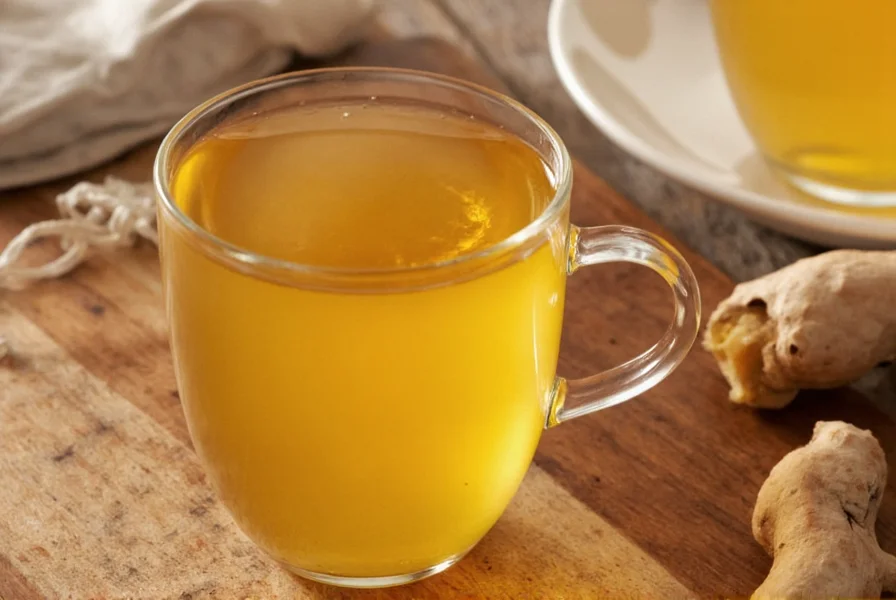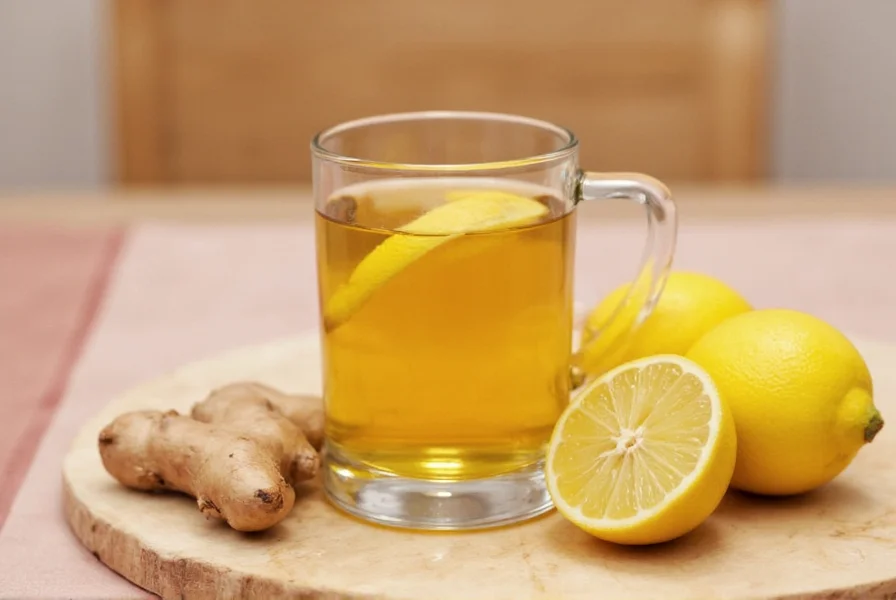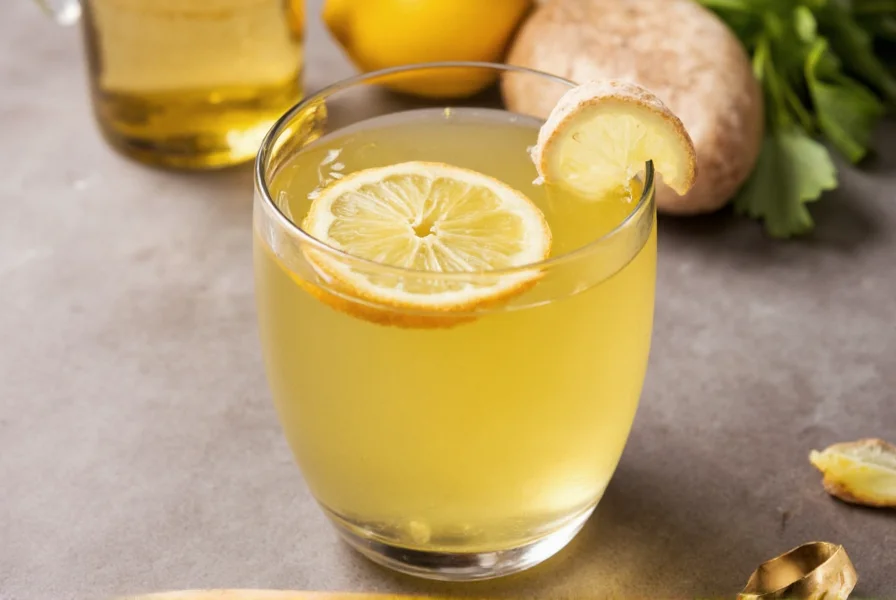For centuries, ginger tea has been cherished across cultures for its distinctive spicy flavor and potential health properties. Whether you're seeking relief from digestive discomfort, a morning pick-me-up, or simply a comforting warm beverage, learning how to prepare ginger tea properly ensures you maximize both flavor and benefits. This guide provides everything you need to create the perfect cup at home.
Why Ginger Tea Deserves a Place in Your Daily Routine
Ginger tea preparation goes beyond simple hydration—it offers a natural way to incorporate wellness into your daily habits. The active compounds in ginger, particularly gingerols, contribute to its characteristic warmth and potential therapeutic effects. Unlike store-bought alternatives that may contain artificial flavors or excessive sugar, homemade ginger tea allows complete control over ingredients and strength.
Essential Ingredients for Perfect Ginger Tea
The beauty of ginger tea lies in its simplicity. You need only a few quality ingredients:
| Ingredient | Quantity | Notes |
|---|---|---|
| Fresh ginger root | 1-2 inches | Choose firm, smooth roots with tight skin |
| Water | 2 cups | Fresh, filtered water yields best flavor |
| Lemon | 1/2, sliced | Adds brightness and vitamin C |
| Honey or maple syrup | To taste | Natural sweeteners enhance flavor |
Equipment You'll Need
Specialized equipment isn't necessary for proper ginger tea preparation. Most kitchens already have what's needed:
- Small saucepan with lid
- Sharp knife or vegetable peeler
- Box grater or mandoline slicer (optional)
- Fine mesh strainer
- Mugs for serving
Step-by-Step Ginger Tea Preparation
Follow these detailed instructions for optimal ginger tea preparation:
- Prepare the ginger: Wash 1-2 inches of fresh ginger root thoroughly. You may peel it using a spoon (which preserves more flesh) or leave the skin on for additional nutrients.
- Slice or grate: Thinly slice the ginger for a milder tea, or grate it for a stronger, more intense flavor. Slicing preserves texture while grating releases more gingerols.
- Boil water: Bring 2 cups of fresh water to a rolling boil in a small saucepan.
- Add ginger: Reduce heat to medium-low and add the prepared ginger. Cover and simmer for 10-15 minutes. Longer simmering creates stronger tea but may become overly pungent.
- Enhance flavor (optional): Add lemon slices during the last 5 minutes of simmering for brighter flavor notes.
- Strain and serve: Pour the tea through a fine mesh strainer into your mug. Add honey or maple syrup to taste while the tea is still hot.

Popular Variations to Customize Your Tea
Once you've mastered basic ginger tea preparation, experiment with these variations:
- Ginger-turmeric tea: Add 1/4 teaspoon turmeric powder and a pinch of black pepper for enhanced anti-inflammatory properties
- Ginger-mint tea: Add 5-6 fresh mint leaves during the last 3 minutes of simmering
- Ginger-citrus tea: Combine with orange or grapefruit slices instead of lemon
- Spiced ginger tea: Add a cinnamon stick, 2-3 cardamom pods, or a small piece of star anise
- Iced ginger tea: Double the ginger quantity, brew strong, then cool and serve over ice
Optimal Steeping Time and Temperature
Understanding how long to boil ginger for tea significantly impacts flavor and benefits. For most preparations:
- Mild tea: 5-7 minutes simmering (ideal for beginners or sensitive palates)
- Standard tea: 10-12 minutes (balanced flavor and benefits)
- Strong tea: 15-20 minutes (maximum potency, best for therapeutic use)
Never boil ginger tea vigorously—gentle simmering preserves delicate compounds while extracting maximum flavor.
Serving and Storage Recommendations
For the best ginger tea experience:
- Serve immediately after preparation for optimal flavor
- Use ceramic or glass mugs to maintain temperature without altering flavor
- Store leftover tea in a sealed container in the refrigerator for up to 3 days
- Reheat gently without boiling to preserve flavor compounds
- Consider making a larger batch and freezing in ice cube trays for quick single servings

Common Mistakes to Avoid When Preparing Ginger Tea
Even simple ginger tea preparation can go wrong. Avoid these common pitfalls:
- Using old or dried ginger: Fresh ginger yields significantly better flavor than dried powder for tea
- Over-boiling: Extended boiling creates bitter, unpleasant flavors
- Adding honey to boiling water: High heat destroys honey's beneficial enzymes—add after removing from heat
- Using tap water with strong chlorine taste: Filtered water improves overall flavor profile
- Skipping the resting period: Let tea sit covered for 2-3 minutes after removing from heat for optimal extraction
Health Considerations and Benefits
Proper ginger tea preparation maximizes potential health benefits. Research suggests ginger may help with:
- Digestive comfort and nausea relief
- Mild anti-inflammatory effects
- Supporting immune function
- Promoting circulation
While not a medical treatment, regular consumption of properly prepared ginger tea can complement a healthy lifestyle. Consult your healthcare provider if you have specific health concerns or take blood-thinning medications.
Frequently Asked Questions
How much ginger should I use for one cup of tea?
For a single serving, use approximately 1/2 inch of fresh ginger root per cup of water. Adjust based on your taste preference—some people prefer stronger ginger flavor while others enjoy a milder version. When preparing ginger tea for multiple servings, maintain this ratio for consistent results.
Can I reuse ginger for multiple tea batches?
Yes, you can reuse ginger for 2-3 batches of tea. The first batch will be strongest, with subsequent batches becoming progressively milder. Store used ginger in the refrigerator between uses. After the third batch, the ginger will have released most of its flavor compounds and should be discarded.
What's the best time of day to drink ginger tea?
Ginger tea works well at any time, but many people prefer it in the morning to stimulate digestion or in the evening for its soothing properties. Avoid drinking strong ginger tea right before bed if you're sensitive to its mild stimulating effects. For digestive support, consume 20-30 minutes before meals.
Does peeling ginger affect the tea's quality?
Peeling is optional in ginger tea preparation. The skin contains additional nutrients and fiber, but may impart a slightly different flavor. If using organic ginger, leaving the skin on increases nutritional value. For non-organic ginger, peeling may be preferable to avoid potential pesticide residues. Always wash ginger thoroughly regardless of whether you peel it.
How long does homemade ginger tea stay fresh?
Properly stored in an airtight container, homemade ginger tea remains fresh in the refrigerator for 3-4 days. For longer storage, freeze in ice cube trays then transfer to freezer bags—frozen ginger tea maintains quality for 2-3 months. Avoid storing at room temperature as ginger tea can ferment quickly.











 浙公网安备
33010002000092号
浙公网安备
33010002000092号 浙B2-20120091-4
浙B2-20120091-4